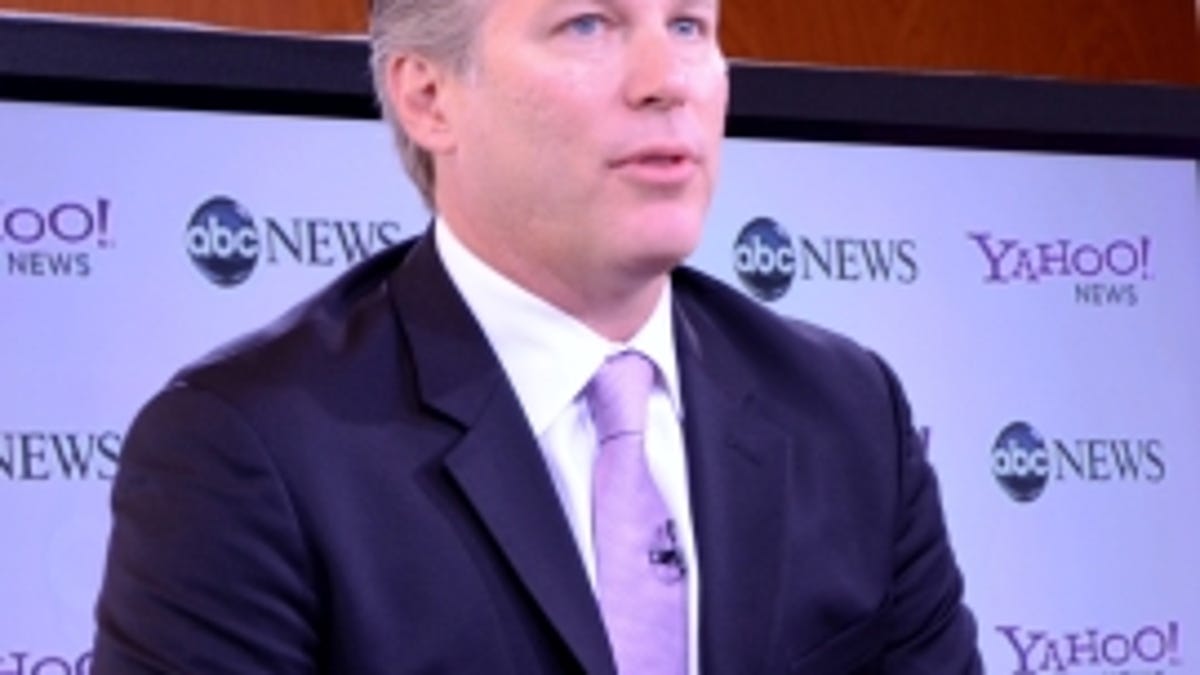Yahoo v. Facebook enters the annals as a big waste of money
The only thing left of former Yahoo CEO Scott Thompson's legal assault on Facebook is a vague improvement to a partnership that already existed.

Yahoo's interim (and most likely the next permanent) CEO Ross Levinsohn just took the step that many were hoping he would: he successfully killed the patent lawsuit against Facebook that Yahoo's previous CEO Scott Thompson had instigated.
The two companies just announced that they have replaced their legal battle with an expanded advertising and content partnership. Before the Thompson lawsuit, the companies already had a working partnership. This deal takes that further.
Given the companies' about-face and their mutual decision to cease hostilities, it's also clear that the lawsuit wasn't worth the expense. Even if Yahoo under Thompson had had its way, the upside still would have been limited with Yahoo making some money, but nothing else, according to patent analyst Florian Mueller of the FOSS Patents blog. "This wasn't about market share," he said. "It wasn't like Apple and Google's patent battle, where the combatants hoped to impose their business model on the other company."
In its litigation against Facebook, Mueller said that Yahoo was not going to regain market share nor even sustain it. "It was just going to make itself more unpopular," he said.
And it was a long shot. As Yahoo prepared its suit against Facebook with 10 patents (eventually expanded to 12) mostly focused on revenue generation methods, Facebook struck back by countersuing Yahoo with 10 of its own patents that it had acquired from AOL. A couple of weeks after getting sued by Yahoo, Facebook bought 750 patents from IBM," bolstering its IP portfolio in advance of what was shaping up as a prolonged court battle.So what was on Yahoo's mind? The company's still not talking about the lawsuit, but in the most charitable reading, Yahoo's patent filing against Facebook might have been just a "jockeying for good negotiating position," says Larry Downes, author of The Laws of Disruption. While patent suits may appear to the public as "the initiation of open warfare," he said they're often just a part of a much larger business-to-business negotiation.
While companies the size of Yahoo and Facebook can battle (or negotiate with) each other much as equals in this kind of a deal, smaller companies usually do not have the resources to play along. "If enough of the industry's giants have all cross-licensed large blocks of garbage patents, it means they can also put up a unified front against any excluded competitor or startup," according to Downes. "In some cases these arrangements become so exclusive that they raise antitrust problems."
In the near term, at least, today's resolution may help to clear away the ill feeling against Yahoo for filing a patent lawsuit against Facebook. Within Silicon Valley's, the lawsuit was viewed by many as a ham-handed move to crush entrepreneurial innovation. Yammer CEO David Sacks was so incensed that he offered a $25,000 signing bonus to attract Yahoo engineers. But while the Yahoo/Facebook accord is good for Yahoo and Facebook, it's not likely to have much of a ripple effect, positive or otherwise, on other companies. The system is still seen as broken by those in the Silicon Valley economy. Dave McClure of 500 Startups writes, "In most cases, patents restrict innovation and place a tax on market entrants that only helps big company incumbents, not the original innovators or inventors." Venture capitalist Shervin Pishevar of Menlo Ventures agrees: "Patents still need to be fundamentally reformed, at least in the digital domain."

